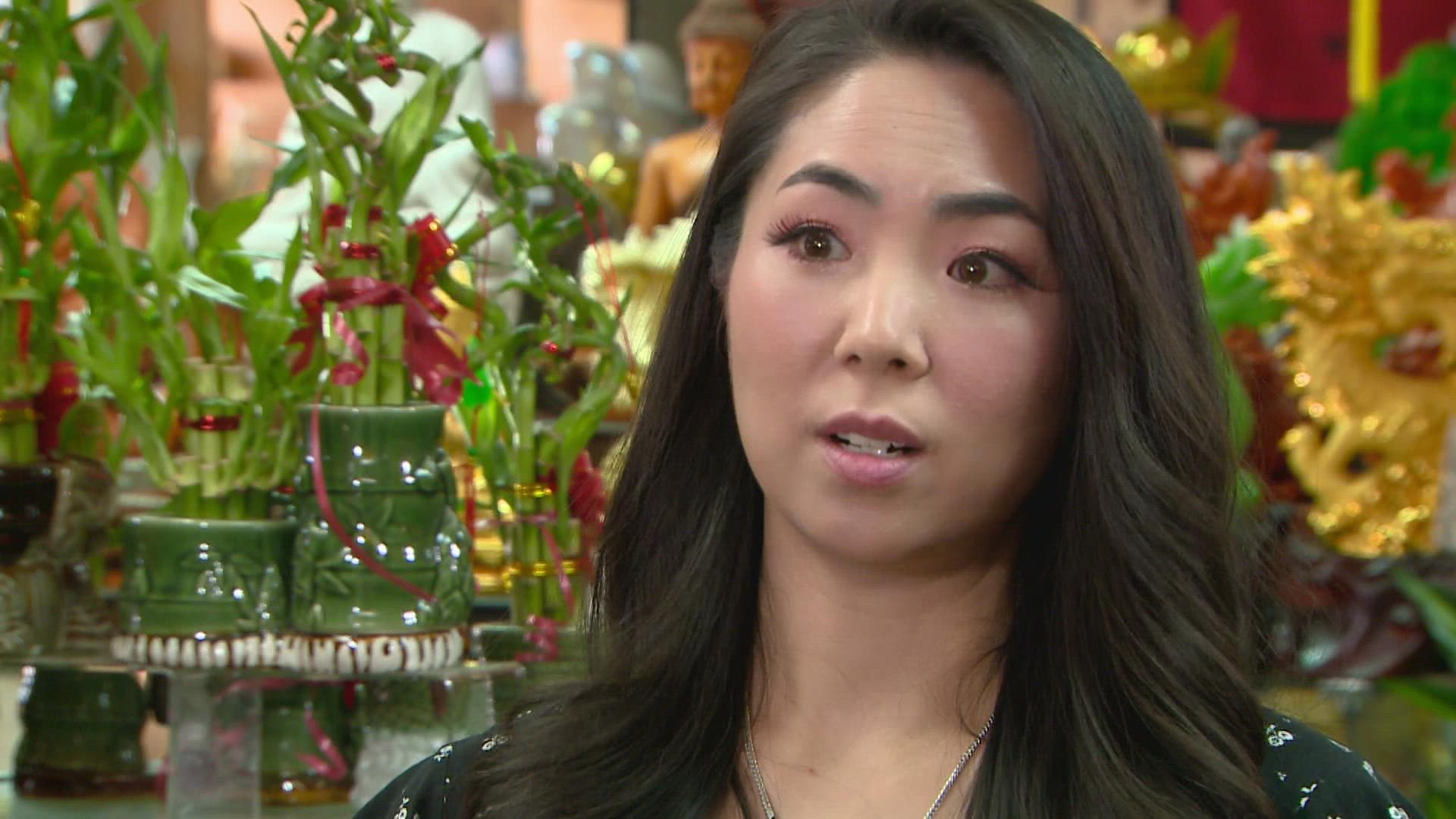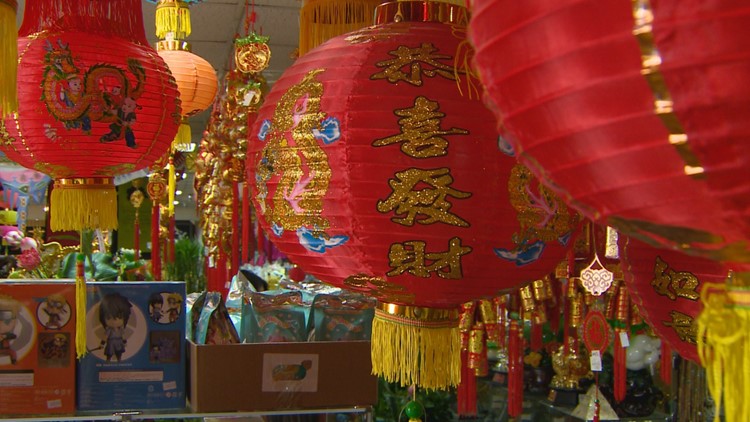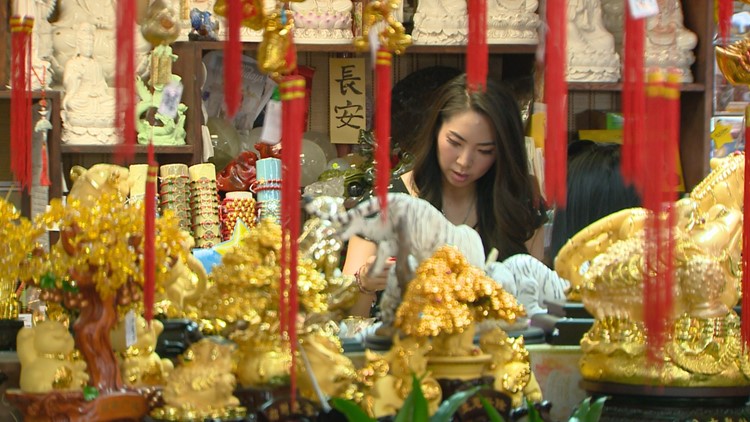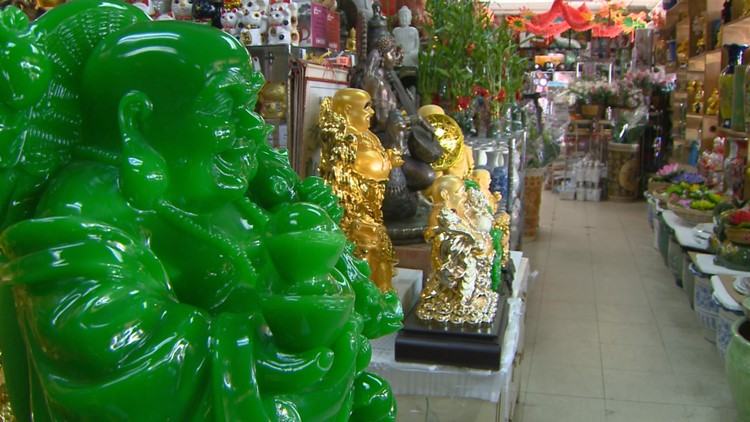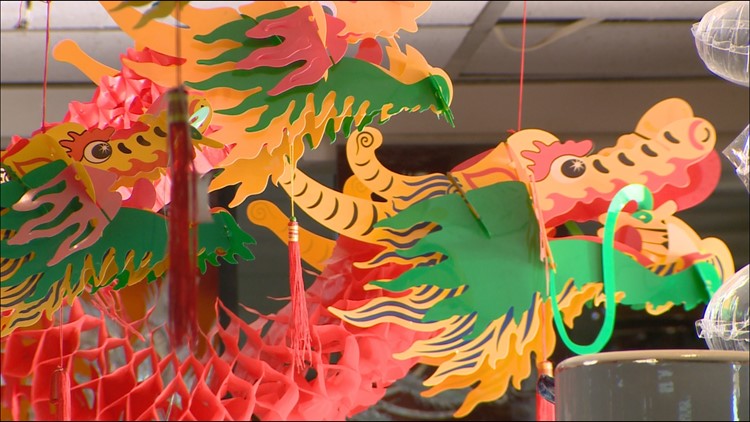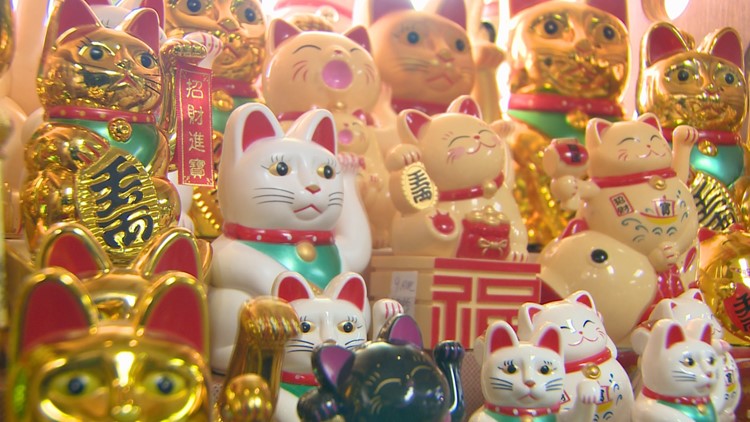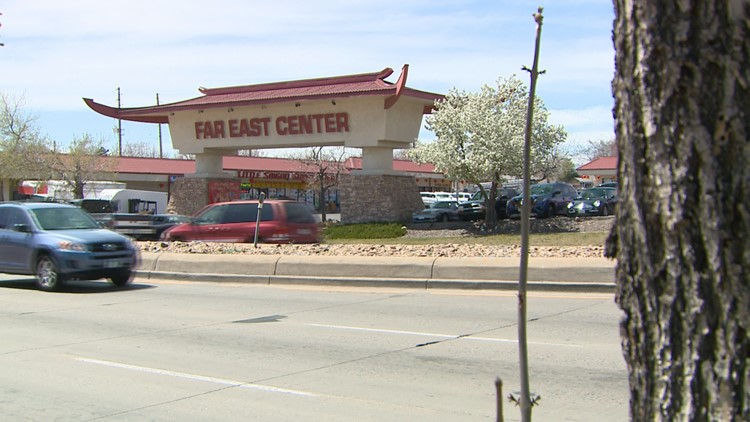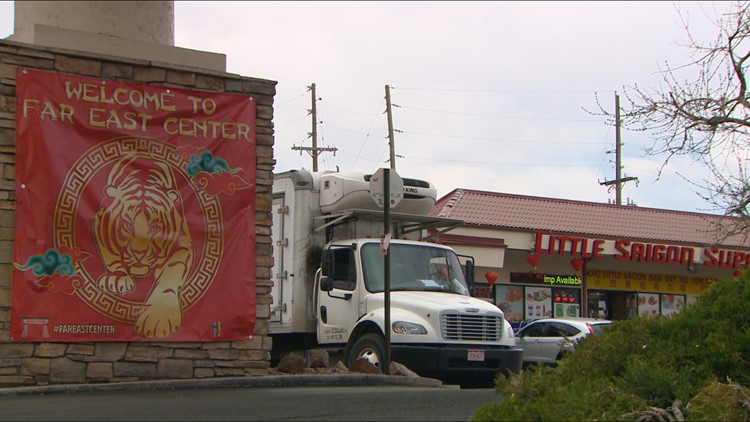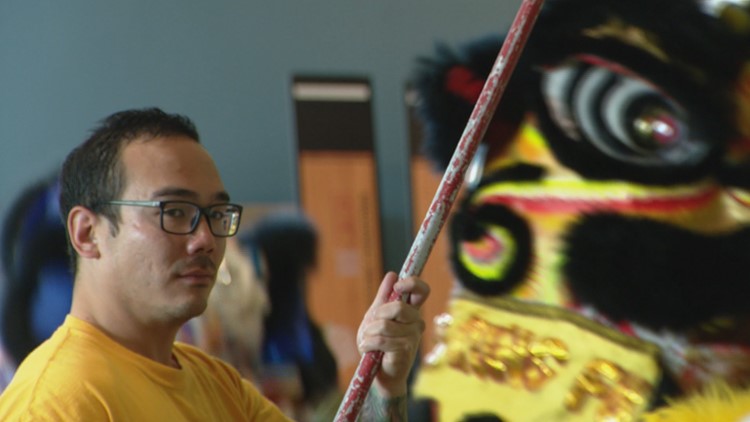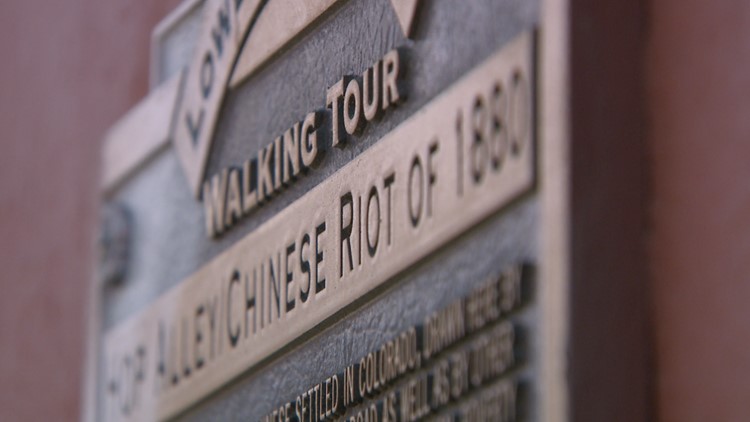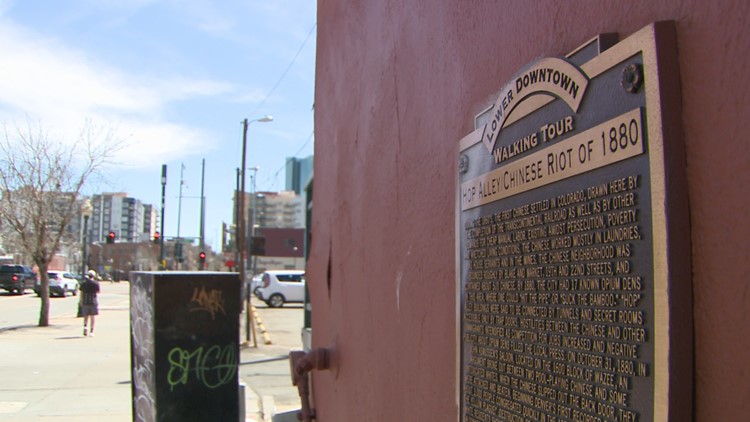DENVER — Surrounded by symbols and culture at her store, Truong An Gifts, Mimi Luong represents potential.
Her parents, who lived in Vietnam but were ethnically Chinese, fled the war in 1975 and came to Colorado with basically nothing. Her father and uncle started an Asian grocery store. Her mother started a video rental store that transformed into a gift shop. Then, they had an idea.
"They got all their money together and they decided: We have a lot of family with restaurants and businesses, small businesses, movies, supermarket. Why don’t we make a plaza?" Luong said.
Her family created the Far East Center at South Federal Boulevard and West Alameda Avenue. The shopping area is a place that the Asian American Pacific Islander community in Denver calls its own, Luong said.
On April 16, they came together when the City of Denver offered a formal apology for a violent riot on Oct. 31, 1880, that killed one man and injured hundreds of others in what was then Denver’s Chinatown.
"An apology in itself is empty unless it comes with action,” said Joie Ha, vice chair of Colorado Asian Pacific United (CAPU), which coordinated the event.
Where Chinatown was located in 1880 is now LoDo – a busy area of bars, restaurants, businesses and Coors Field. There’s no evidence that the area used to be a Chinatown, Ha said.
She said an ill-conceived plaque in LoDo on the "Chinese Riot" is offensive and located in the wrong place.
"It's important to note that this plaque, although with good intentions, gives a very one-sided and narrow view of what happened," Ha said.

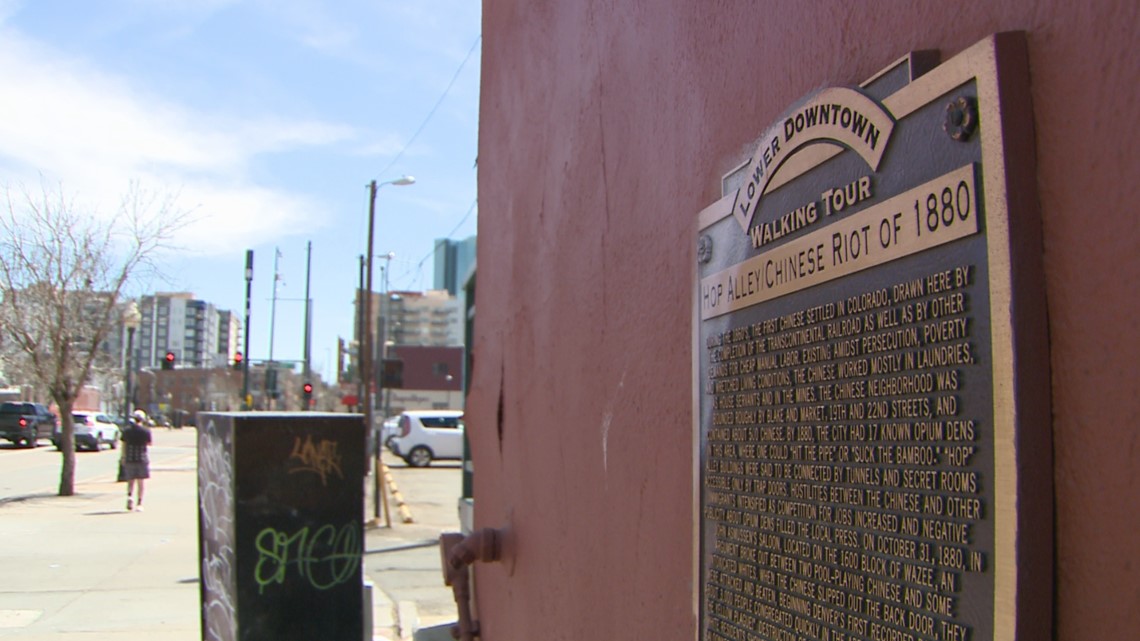
She said it's reasons like this, and how the City of Denver handled race relations after the riot in 1880, that led to an apology from Mayor Michael Hancock.
"I, Michael B. Hancock, Mayor of the City and County of Denver, by virtue of the authority vested in me and on behalf of our city, do hereby sincerely apologize to the early Chinese immigrants and their descendants," Hancock said at an April 16 ceremony.
Ha said the apology is just the beginning. The City of Denver is also working on placing accurate historical markers regarding the riot and making plans for an Asian American museum.
Denver was the fifth city – and the first outside California – to make this sort of apology to Asian Americans.
"As [an] Asian American born in Colorado, I feel like this is just the beginning of history starting," Luong said.
Luong wants the Far East Center and the surrounding area on Federal from Alameda to West Mississippi Avenue to be officially recognized as "Little Saigon Denver" by the city with a more engaging relationship to celebrate the local Asian American Pacific Islander community.
"We are here, and our voices are getting heard," Luong said.
Photos from Denver's Asian American Pacific Islander community
Ha said this goes a long way toward improving relationships around Denver.
"It's important that we have these ethnic enclaves that provide a safe space for different communities of color, and Far East Center has been one for decades," Ha said.
It's been a safe space for Asians who have been in Colorado and for those who are coming in now, she said.
Su Baw is a refugee who fled her home country of Burma, also known as Myanmar, after decades of oppression of her people, who are known as Karen.
She first crossed the border to Thailand, where she lived in a refugee camp for 15 years before making it to the United States.
"Coming to Colorado, it's very difficult because I don't understand language, and then I used to live in jungle," she said.
She works at the Asian Pacific Development Center in Aurora, an organization that helps immigrant families adjust to life here. She’s also co-founder of a nonprofit organization called Project Kare to help other Karen in Myanmar and refugee camps.
"If we have more refugees coming, I will help them, whatever I can do, whatever I can help them," Su Baw said.
She and other refugees in Aurora are learning to break the language barrier.
"This affects ability for finding good jobs and quality health care," Su Baw said.
It affects their ability to build a new beginning, she said.
"I am happy to come here,” Su Baw said. “Freedom is here."
What is also here, Luong said, is support from a growing Asian American Pacific Islander community.
"Now that we have the connection, I think the refugees or the immigrants that come here will have a better and easier way of starting their new life," she said.
SUGGESTED VIDEOS: Voices of Change

